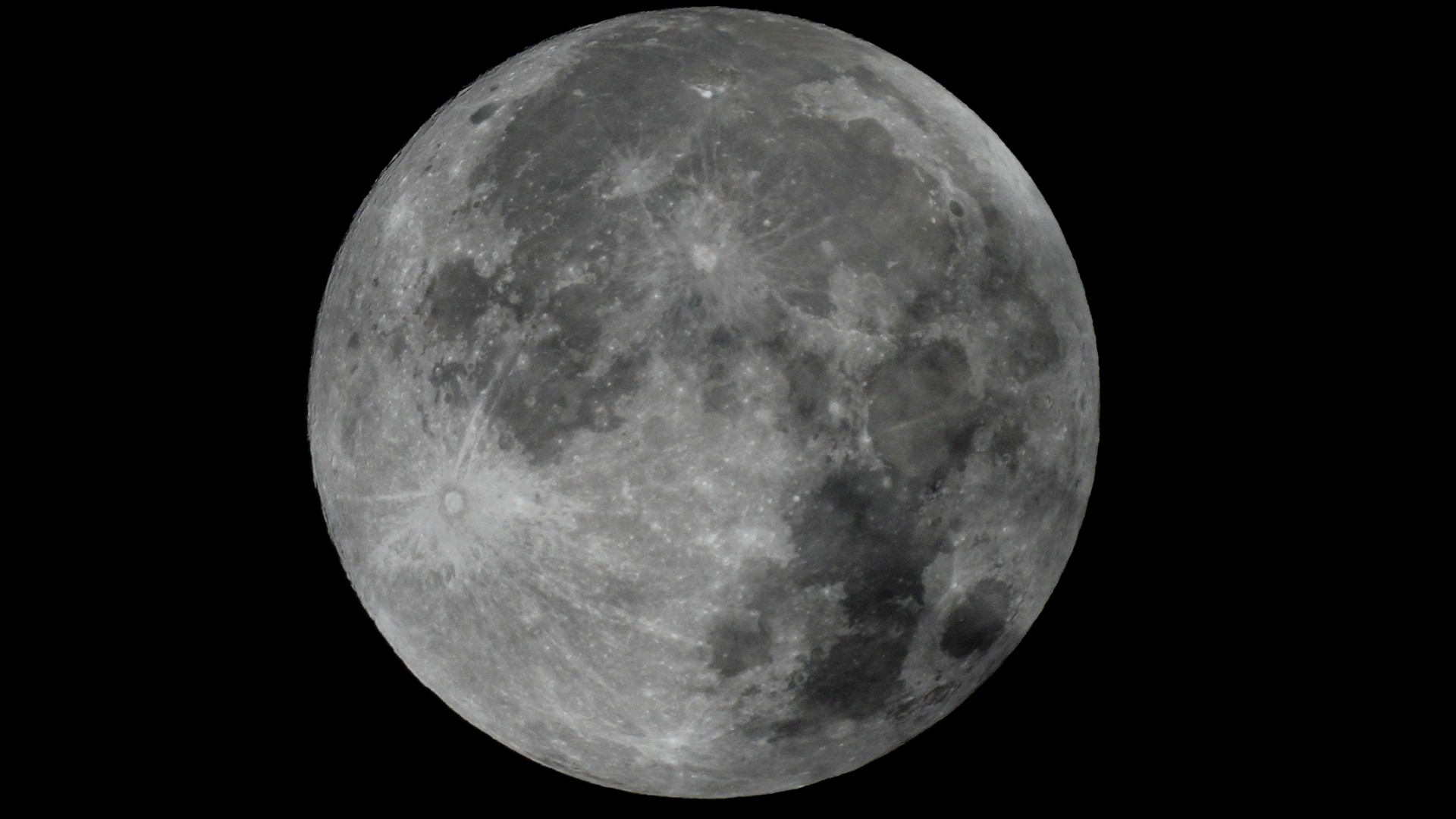
March's full moon, the Worm Moon, rose over Earth on Sunday, March 24, exactly two weeks before the total solar eclipse that will sweep over North America on April 8, 2024.
Not to be left out of the eclipse action, the Worm Moon was marked by a slightly less dramatic lunar eclipse. The moon slipped into the Earth's outer shadow, the penumbra, late Sunday night, early Monday morning.
Skywatchers in North America and South America were in the best position to spot this penumbral eclipse warm-up for the total solar eclipse main event next month, but that didn't stop skywatchers across the globe from capturing stunning images of the Worm Moon.
Related: March full moon 2024: The Worm Moon gets eclipsed
Read more: Lunar eclipses 2024: When, where & how to see them
Because the moon only dwells in the lighter outer shadow of the Earth during a penumbral eclipse, the effect of this event is a slight dimming of our lunar companion. That means that this event can be difficult to see and capture in an image.
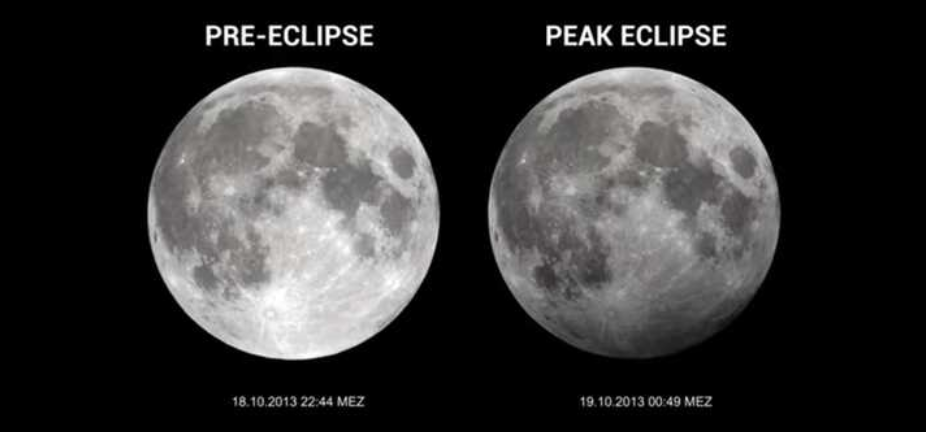
The subtle nature of the penumbral eclipse didn't stop Space.com reader Daniel McCartney from capturing it as it occurred over Syracuse, New York, early on Monday morning.
"I thought I would share a photo of the maximum penumbral lunar eclipse I took this morning over Syracuse, New York," Daniel wrote.
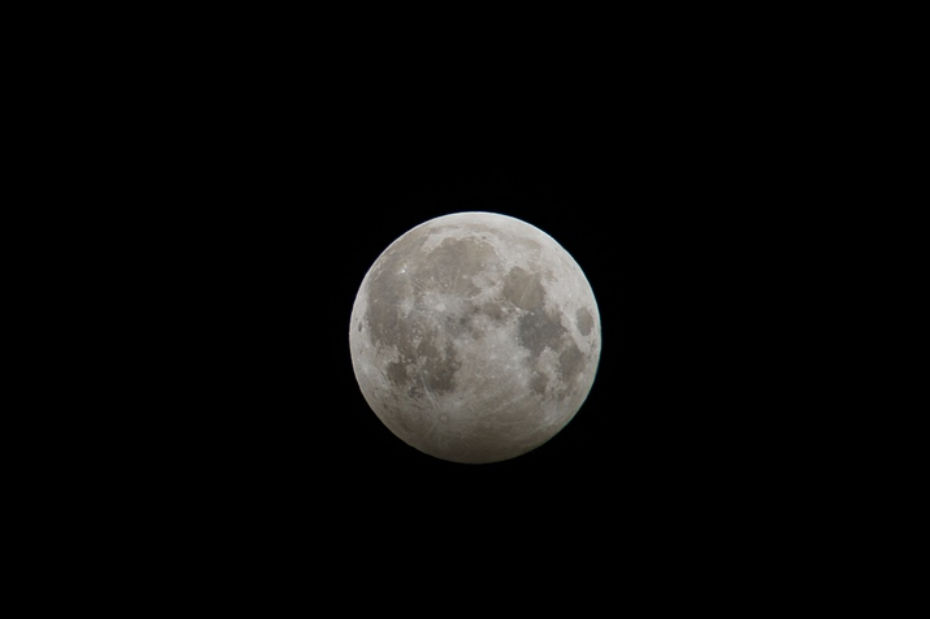
There was certainly no sign of the moon being darkened by Earth's shadow when the Worm Moon wriggled its way out from behind the EdgeNYC observation deck at Hudson Yards in New York in an image that was captured from Hoboken, New Jersey.
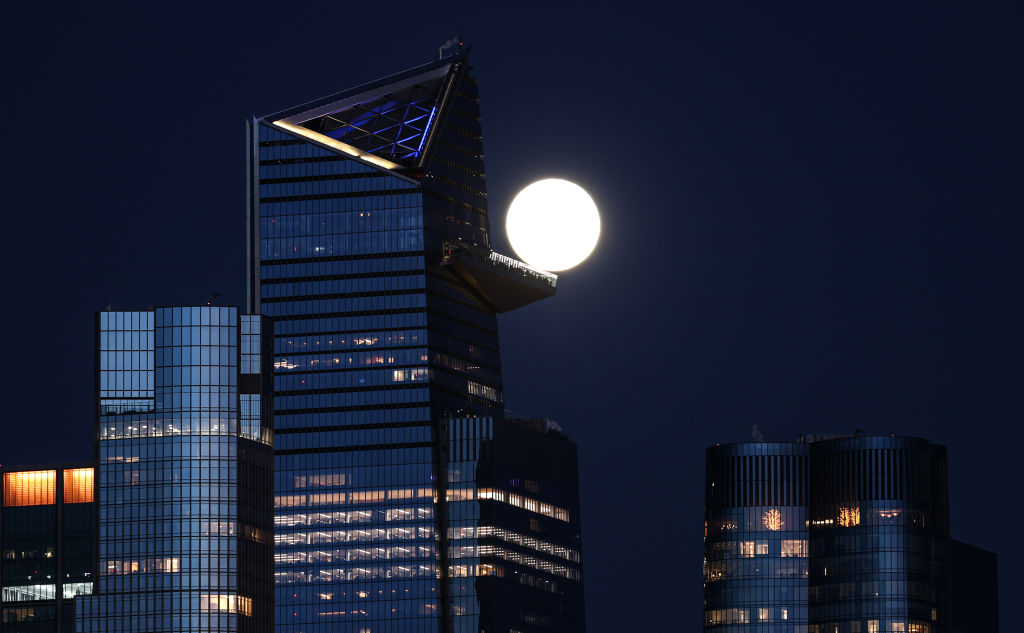
The full Worm Moon took on a more muted yellow hue when captured behind the spire of the Empire State Building also in New York City and seen from Hoboken.
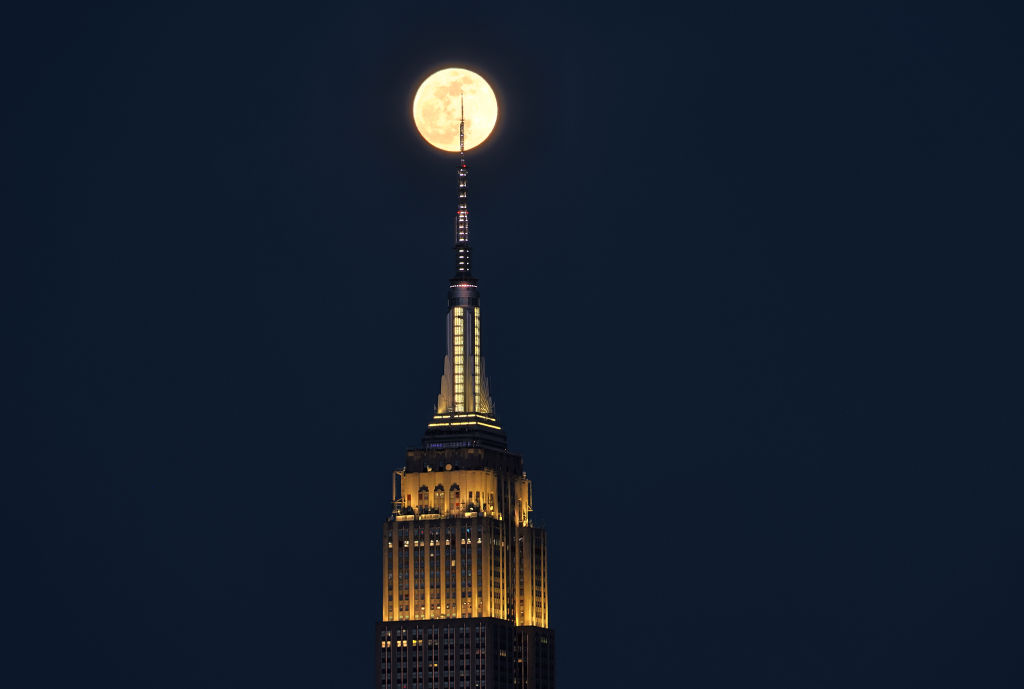
X user and proud New York native Max Guliani captured footage of the Worm Moon rising next to another of the city's famous landmarks: Manhattan’s Two Bridges, which cross the East River.
March's full worm moon rising behind Manhattan’s Two Bridges #NYC pic.twitter.com/wn4Lbler2xMarch 25, 2024
Max also pictured the March full moon rising between the buildings of 42nd Street in New York City, sharing the image on his X feed.
Last night’s full moon rising through 42nd Street #NYC pic.twitter.com/T4Y7YjQx6eMay 6, 2023
San Francisco is home to a slightly more famous bridge, the Golden Gate Bridge, which frames a cloud-shrouded, orange-glowing full moon in this stunning image.
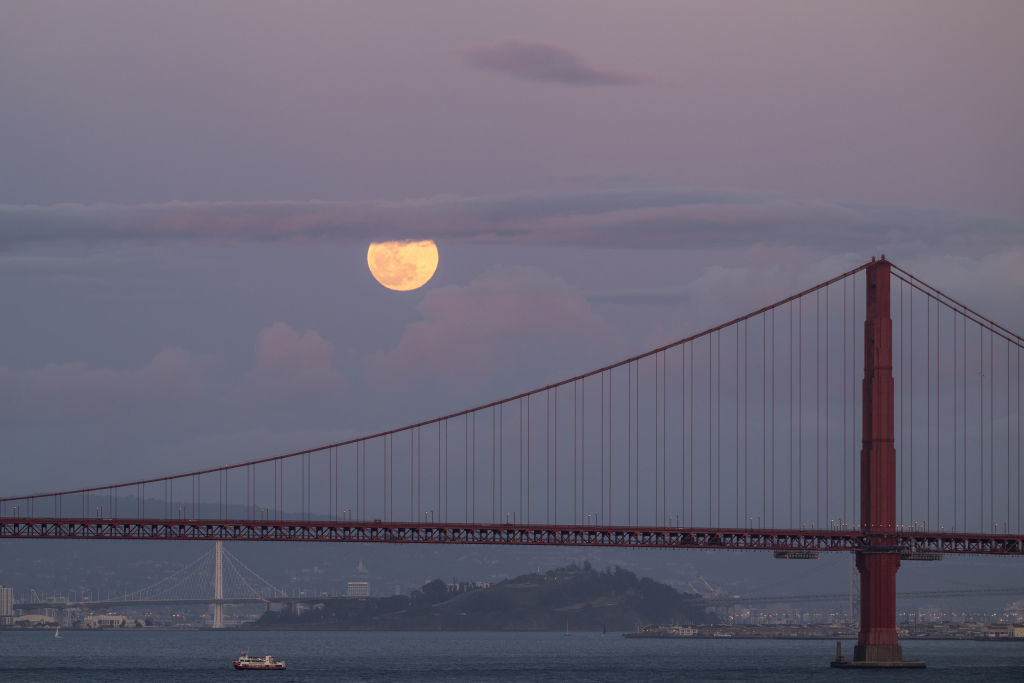
Back on X, amateur photographer and astronomy/science hobbyist Susan Snow posted an incredible time-lapse video of the Worm Moon rising over the trees in England.
The gorgeous Worm Moon rising this evening.... #FullMoon #FullWormMoon #WormMoon #Moon pic.twitter.com/RVoYfQtXPyMarch 24, 2024
The worm turns!
The name "Worm Moon" was initially believed to refer to the appearance of earthworms in the soil, inviting birds to land and feed and act as a sign of oncoming Spring.
This idea has been challenged by research historical research, according to Almanac, which suggests "Worm Moon" actually refers to a different sort of “worm”—beetle larvae. these creatures begin to emerge in March as the bark of trees thaws, destroying their winter hideouts.
There was nothing worm-like, be it beetle larvae or earthworms, about the full moon as it appeared in the sky over Istanbul, Turkiye, on March 24, 2024. The giant, fiery red full moon was caught between the two spires of the Fatih Mosque.
The effect seen in this image almost replicates the red hue that the moon takes on during a total lunar eclipse, which occurs when the moon passes into the darker inner region of Earth's shadow, the umbra.
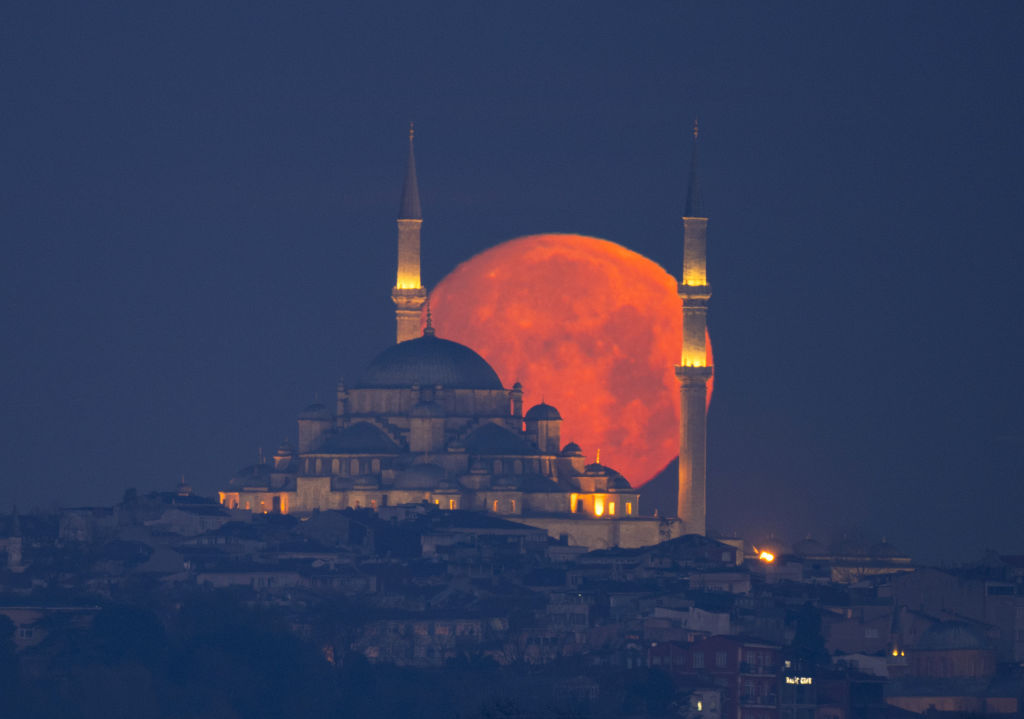
The nearly full moon was a slightly less intimidating sight for a joyous bystander in L'Aquila, Italy, on Saturday evening.
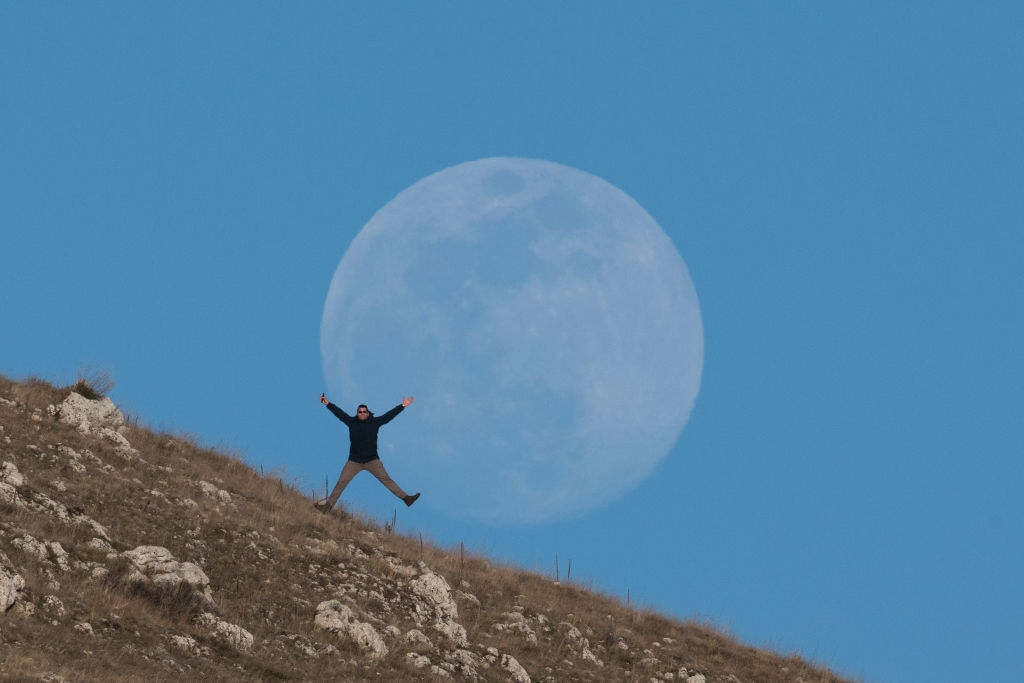
Earth's shadow wasn't the only thing eclipsing the full moon on Sunday evening. An airplane unintentionally obscures a tiny portion of the full moon as it is captured over Istanbul, Turkiye.
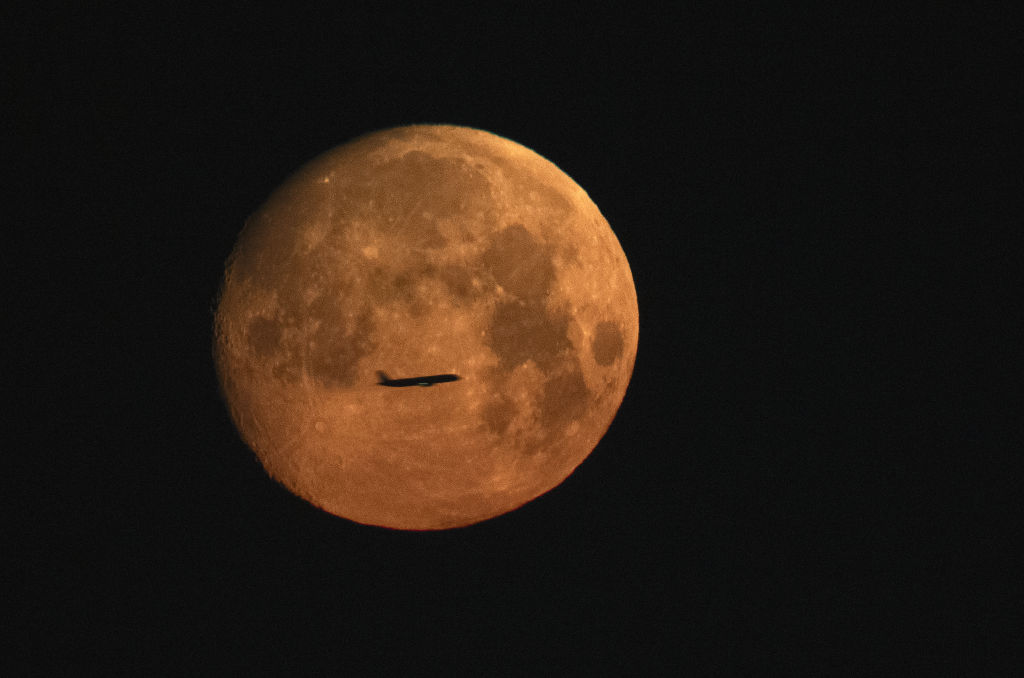
X user Rami Ammoun, who goes by the handle "@rami_astro," captured a stunningly bright image of the Worm Moon from Nashville, Tennesse.
The full Worm Moon tonight 🪱🌕 pic.twitter.com/YN3ZC5ST9ZMarch 25, 2024
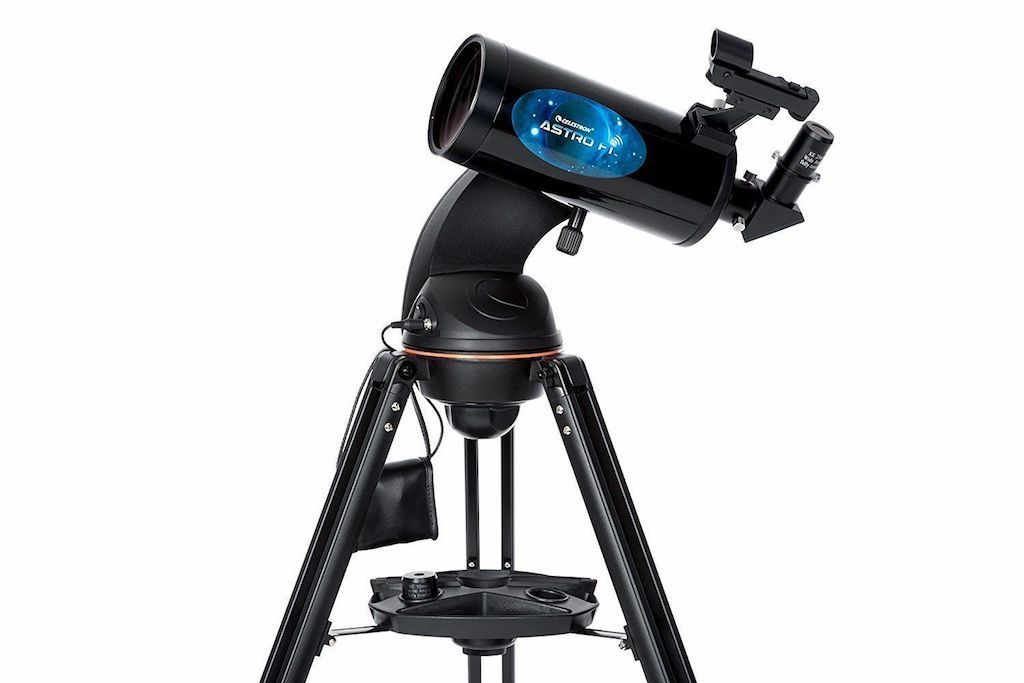
Looking for a telescope to see the features of the full Worm Moon up close? We recommend the Celestron Astro Fi 102 as the top pick in our best beginner's telescope guide. Don't forget a moon filter!
In Tehatta, West Bengal, India, the Worm Moon was seen peaking through the gaps in leaves and branches on Sunday evening.
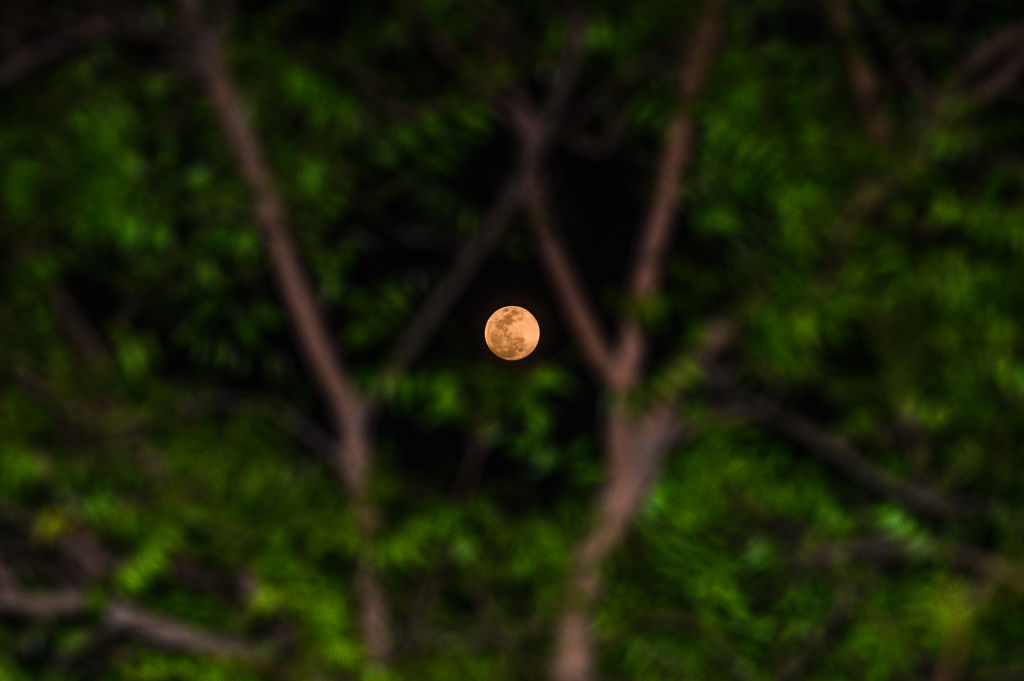
If these images of the Worm Moon have you as peckish as a spring Robin and you hope to catch an image of the next full moon, you don't have long to wait. Next month's full moon, the Pink Moon, rises on April 23, 2024.
If you'd like to take a look at the moon close-up after seeing these incredible photos, our guides to the best telescopes and best binoculars are a great place to start.
And whether you want to image the moon or to explore the night sky in general, check out our guide on how to photograph the moon, as well as our recommendations for the best cameras for astrophotography and best lenses for astrophotography.
Editor's Note: If you snap an image of the Wolf Moon and would like to share it with Space.com’s readers, send your photo(s), comments, and your name and location to spacephotos@space.com.







